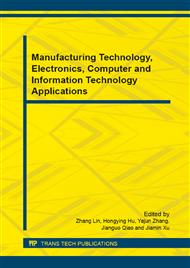p.4564
p.4568
p.4573
p.4577
p.4582
p.4588
p.4597
p.4605
p.4609
A Total Quality Management Research on the Portman Ritz Carlton Shanghai
Abstract:
In the hospitality industry, customers are seen as the key driving a business’s survival and success. The industry is therefore highly competitive and much more aware of the provision of quality service to meet customer expectations. Since hotel businesses are providing similar superior facilities among competitors in the market, service quality has been considered as the first priority and essential part of the organisational culture, making today’s businesses more concerned with delighting their customers than simply satisfying them [1]. Consequently, Total Quality Management (TQM) is becoming a widely used business management strategy within the hospitality industry. The intent of this essay focuses on the issue of service quality with the selected hotel - The Portman Ritz Carlton, Shanghai. It will first introduce TQM theory and then discuss how the approach helps to generate and maintain high quality service to achieve “customer delight”.
Info:
Periodical:
Pages:
4582-4587
Citation:
Online since:
November 2014
Authors:
Price:
Сopyright:
© 2014 Trans Tech Publications Ltd. All Rights Reserved
Share:
Citation:


